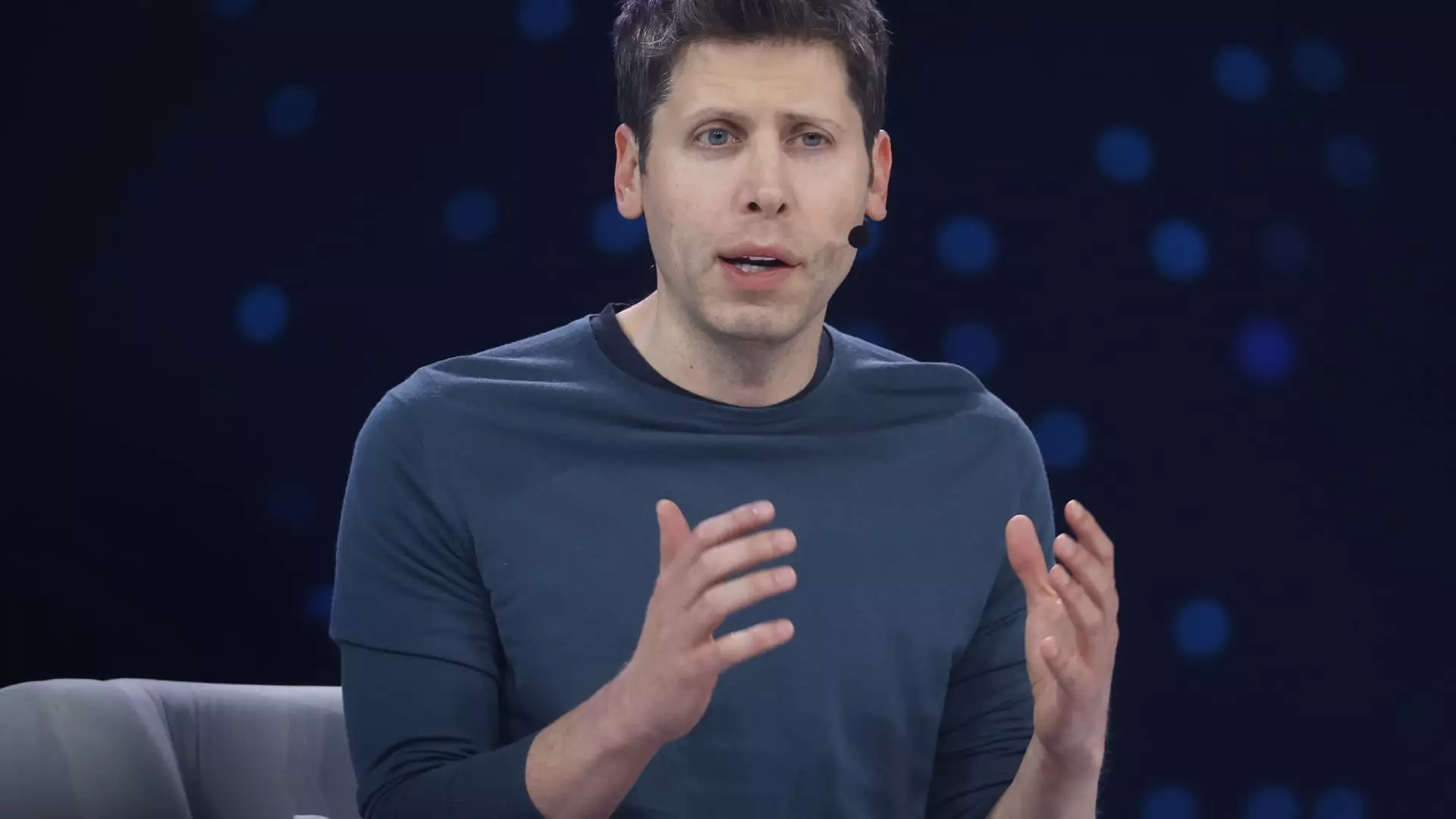In the constantly evolving landscape of artificial intelligence, the stakes have never been higher. Recently, reports emerged detailing how Meta Platforms has attempted to lure talent away from OpenAI with astonishing signing bonuses of up to $100 million, along with potentially even more lucrative annual compensation packages. This aggressive and financially audacious strategy signifies a desperate striving for AI dominance, yet it raises critical questions about value creation and corporate culture within the tech giant. OpenAI’s CEO, Sam Altman, shed light on this competitive tension during a podcast episode, noting that while Meta had made overtures to recruit many from his organization, none of OpenAI’s top performers had taken the bait thus far.
This attempt by Meta constitutes a classic case of corporate desperation when faced with fierce competition. It appears that Mark Zuckerberg and his team view OpenAI as a formidable rival, one whose capabilities have overshadowed their own. Yet, despite the large financial incentives, the question looms: is money really enough to attract top-tier talent in a field that thrives on innovation, creativity, and a lasting commitment to a vision?
Cultural Bankruptcy: Money vs. Innovation
Sam Altman articulated a crucial point about the potential fallout from such monetary enthusiasm. He argues that purely financial incentives can undermine the very essence of a creative and innovative culture within a company. Instead of building a team poised to innovate, the focus might shift toward securing riches over deep engagement with the work. The tech industry has seen this played out before—where companies, in their attempts to ‘copy’ their most successful rivals, have lost their own identities.
Meta’s challenge isn’t merely one of competing for top talent; it is also about fostering a culture of innovation that can organically produce groundbreaking technologies. The notion that slapping a hefty price tag on a job offer can easily translate to attracting capable minds ignores the cultural and psychological aspects driving creativity. Employees need work environments that inspire them, challenge their intellect, and allow for growth—not just inflated paychecks that offer fleeting satisfaction.
The Illusory Promise of Superintelligence
The recent hiring of Alexandr Wang from Scale AI to lead a new research team focused on “superintelligence” showcases Meta’s ambition to leapfrog its competitors in AI. However, one must question whether this new team can indeed produce outcomes that surpass the existing capabilities of OpenAI. With similar initiatives floundering in the past, one wonders if this is another instance of throwing financial resources at a problem with the hope that sheer excess will yield breakthrough results.
Zuckerberg’s involvement in recruitment suggests a hands-on approach, yet such direct involvement can often reflect an absence of trust in existing leadership and strategy. The broader implication is clear: if the top brass believes that they must attract top talents through drastic financial measures rather than a compelling vision, the struggle for technological supremacy itself is on shaky ground. In the long run, this could lead not only to dissatisfaction among the recruits but also to disillusionment among existing employees who witness the prioritization of wealth over creativity.
The Open Source Paradox
Interestingly, Meta has its roots in contributing to open-source AI development, which is critical for the current ecosystem surrounding artificial intelligence. The very tools that enable third-party developments are derived from Meta’s investments, indicating that while they might be financially overshadowed by OpenAI, they have a platform that serves as the backbone for many innovations in the field.
Some analysts even argue that Meta might not be as far behind in the AI race as it seems. Their significant investments, exemplified by the purchase of a stake in ScaleAI, are ambitions that may catalyze future advancements, broadening their AI capabilities. It raises an essential point: does the quest for top-tier talent overshadow Meta’s existing contributions to the AI landscape? While they grapple with their own identity in the AI domain, it’s crucial for them to recognize the value they already bring to the table and how they might leverage that for future innovations.
In a world rapidly shifting toward an AI-centric future, the battle between titans like Meta and OpenAI underscores not only the financial stakes involved but the philosophical and cultural challenges haunting corporate America today. The outcome remains uncertain, but one thing is clear: innovation will always prevail over a dollar-sign mentality.

